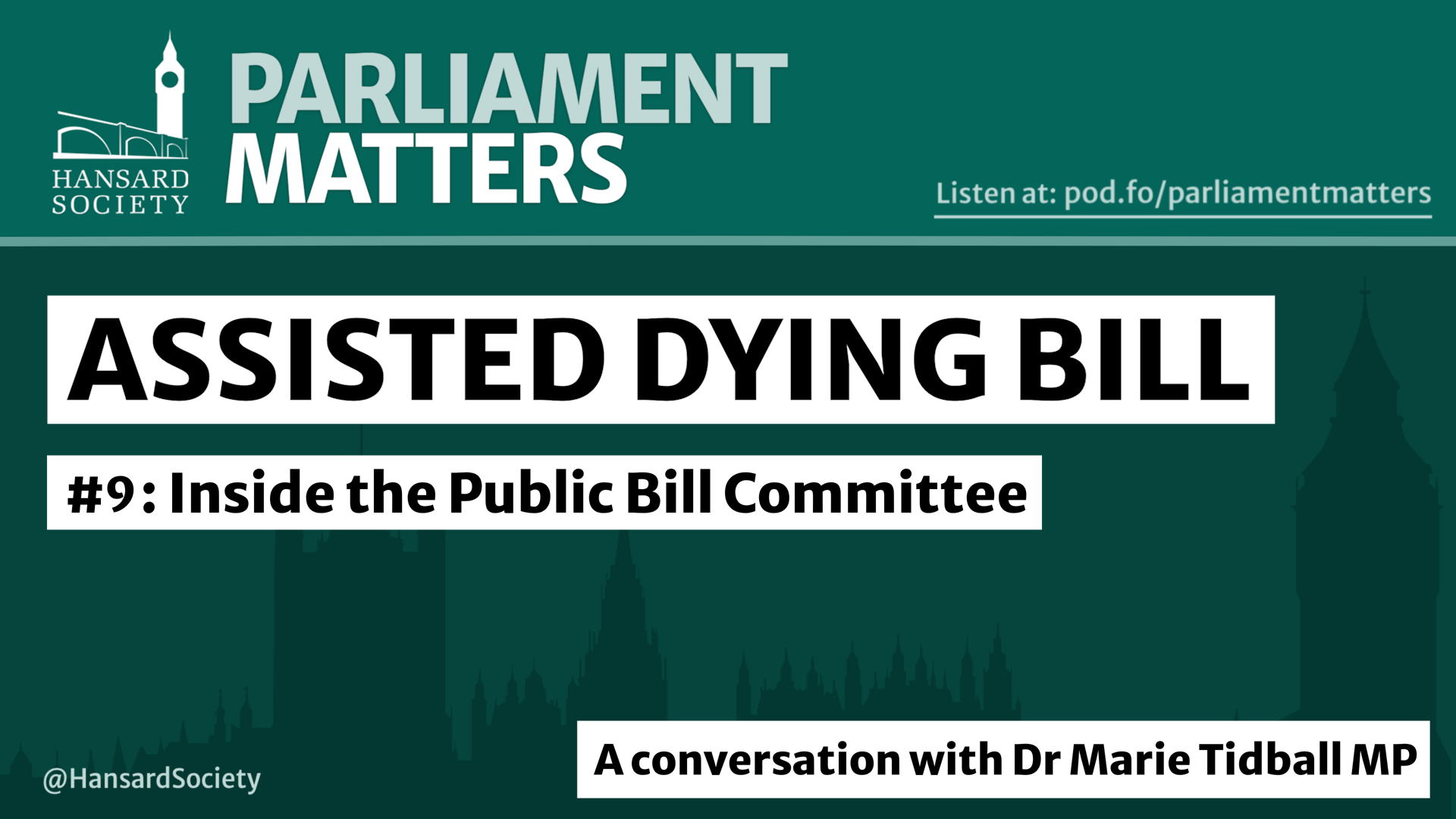Guides / Delegated Legislation: Frequently Asked Questions
What is delegated legislation? What is Parliament's role in it? And what is a 'Henry VIII' power? We answer your questions.

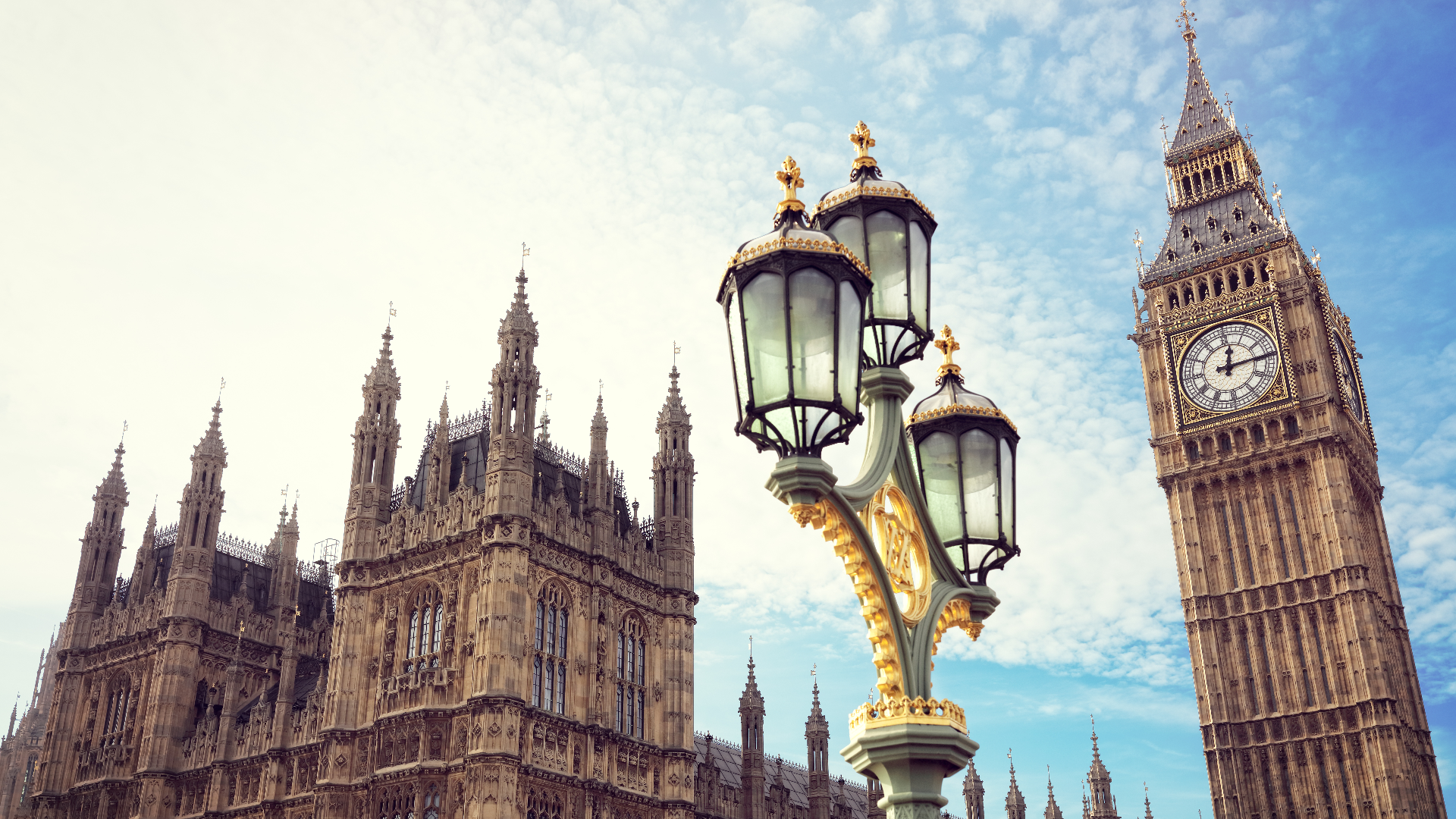
This is the last sitting week before Parliament adjourns again for a three week recess for party conference season. We will find out this week who will chair the Select Committees in the House of Commons and the members of the new Modernisation Committee will be appointed. Two of the five days of parliamentary business are likely to be dominated by debates on the Statutory Instrument to implement the Government's controversial changes to Winter Fuel Payments for pensioners.
We hope you find this Bulletin useful and would welcome any feedback. To get future editions direct in your inbox as soon as they are published sign up to our newsletter.
Our Parliament Matters Bulletin page has all the past editions - bookmark it to make sure you can always access the latest edition.
Parliamentary business can change at short notice so always double-check the Order Paper on the relevant day if you are interested in a particular item of business listed below.
MPs who want to chair a Select Committee must submit their nomination papers on Monday. Twenty-seven chairs are subject to election by the whole House; the election for all the contested positions will be held on Wednesday. The size of Labour’s majority means that two-thirds of the chairs will come from the Government benches, so the choice of personnel matters greatly for how independent and effective Select Committees will be throughout this Parliament.
The most controversial vote of this Parliament to date will be held on Tuesday in the Commons and on Wednesday in the Lords when MPs and Peers will be asked to reject the Government’s decision to introduce a means-test for the Winter Fuel Allowance. The Leader of the Opposition, Rishi Sunak, has tabled a ‘prayer motion’ calling for the Statutory Instrument (SI) that implements the policy to be annulled. An Early Day Motion expressing a range of concerns about the policy has also been tabled by the new Labour MP Neil Duncan-Jordan and a similar motion has been tabled by the Lib Dem Chief Whip, Wendy Chamberlain. However, neither of these motions will be subject to a vote – the House will consider only Rishi Sunak’s motion as his is the only one set out in accordance with the statutorily required language to revoke the Instrument. The other motions do, however, enable unhappy MPs – particularly on the Labour benches – to register their concerns. In the House of Lords, a motion to annul the SI has also been tabled by the non-affiliated Peer, Baroness Altmann (who is a former Conservative pensions Minister) and there are two other motions expressing ‘regret’ about the policy.
The House of Commons has not rejected a Statutory Instrument since 1979 and as Labour has such a large majority it seems politically inconceivable that the House will do so this time. Peers have rejected an SI more recently than MPs (the last time was in 2012), but the House of Lords is very cautious about exercising its veto power given its constitutional status as an unelected House. It is therefore also unlikely that Peers will vote to reject the Instrument if, just 24 hours beforehand, MPs have approved it.
What is delegated legislation? What is Parliament's role in it? And what is a 'Henry VIII' power? We answer your questions.

It is not yet clear who will lead for the Government in the debate and whether any concessions will be offered. Statutory Instruments - a form of delegated legislation - cannot be amended so if any concessions require legislative underpinning, then the Government will either have to introduce another Statutory Instrument or make provision for the changes in primary legislation, tagging measures onto an existing Bill if that is possible (which will depend on the scope) or perhaps incorporating them in the post-Budget Finance Bill in the Autumn.
The Committee tasked with recommending reforms to the standards, practices and procedures of the House of Commons, as promised in Labour’s manifesto, will be established this week. As expected, this new Committee will resemble the Blair-era Modernisation Committee: unlike departmental Select Committees its members will be appointed and it will have a Minister – the Leader of the House of Commons, Lucy Powell – as its chair. The proposed 14 members of the Committee also include a Government Whip and the Leader’s own Parliamentary Private Secretary.
The Committee’s proposed membership is notably short on parliamentary experience, reflecting the high turnover of MPs at recent general elections:
five of the MPs were elected for the first time in 2024;
only six have experience of Parliament prior to the 2019 General Election; and
only one was elected prior to 2010.
Most of the proposed members will therefore have little experience of the early Brexit debates, and only one – Sir Christopher Chope – was in Parliament prior to the Conservative-Lib Dem coalition of 2010 and the MPs expenses scandal in 2009.
Delegated legislation is the most common form of legislation in the United Kingdom. It is the legislation of everyday life, impacting millions of citizens daily. But the terminology and procedures that surround it are complex and often confusing. This explainer unpacks delegated legislation - the terminology and Parliament's role in scrutinising it - to reveal more about how delegated legislation really works.
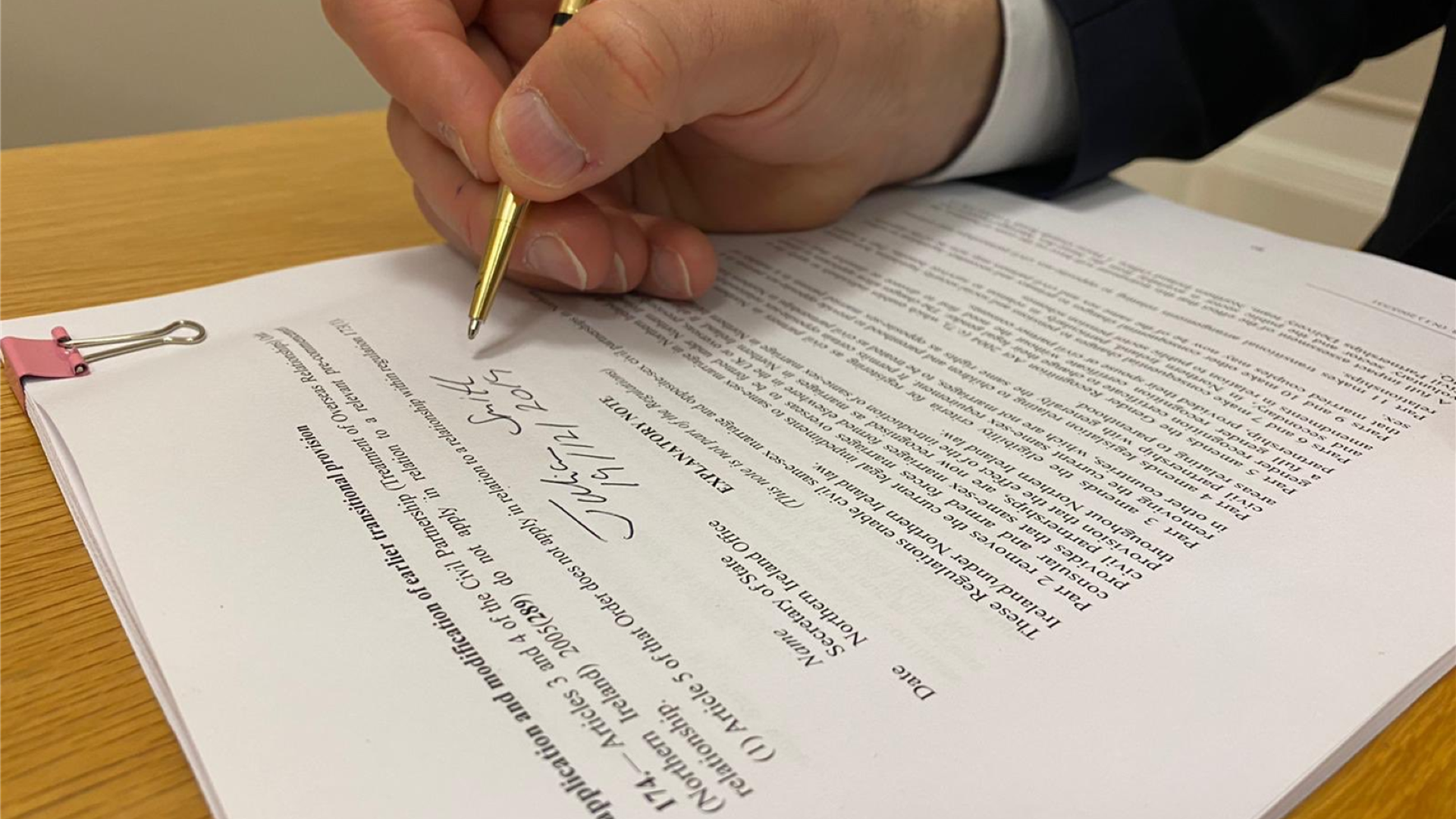
Notably there are no Government bills scheduled for debate this week in the Commons: parliamentary time is instead devoted to consideration of Statutory Instruments (delegated legislation) and general debates. However, it is reported that at least one new Bill will be presented to Parliament, most likely the Renters Rights Bill. In Opposition some Labour spokespeople emphasised the importance of the first 100 days in office during which Ministers would introduce major measures such as the planning bill, legislation to extend devolution in local government, and introduce new employment proposals. That 100-day mark is reached on 12 October and there are now just two sitting weeks – this week and the first week back after the party conference recess – during which Bills can be presented at First Reading before that deadline is reached.
The Commons will rise for the party conference recess on Thursday, with Peers sitting a day longer. Both Houses will return three weeks later on Monday 7 October. If you missed it, the Leader of the House of Commons announced last week what the recess dates will be through to next Summer – enabling all of us to plan ahead with greater certainty than has been possible in recent years!
In the meantime, with no sittings to write about, this Bulletin will take a recess of its own too, returning on Sunday 6 October, ready to explain everything to expect in the first week back.

Presented by Mark D’Arcy, former BBC parliamentary correspondent, and our Director, Ruth Fox, you can listen to our weekly podcast by subscribing via your favourite app.
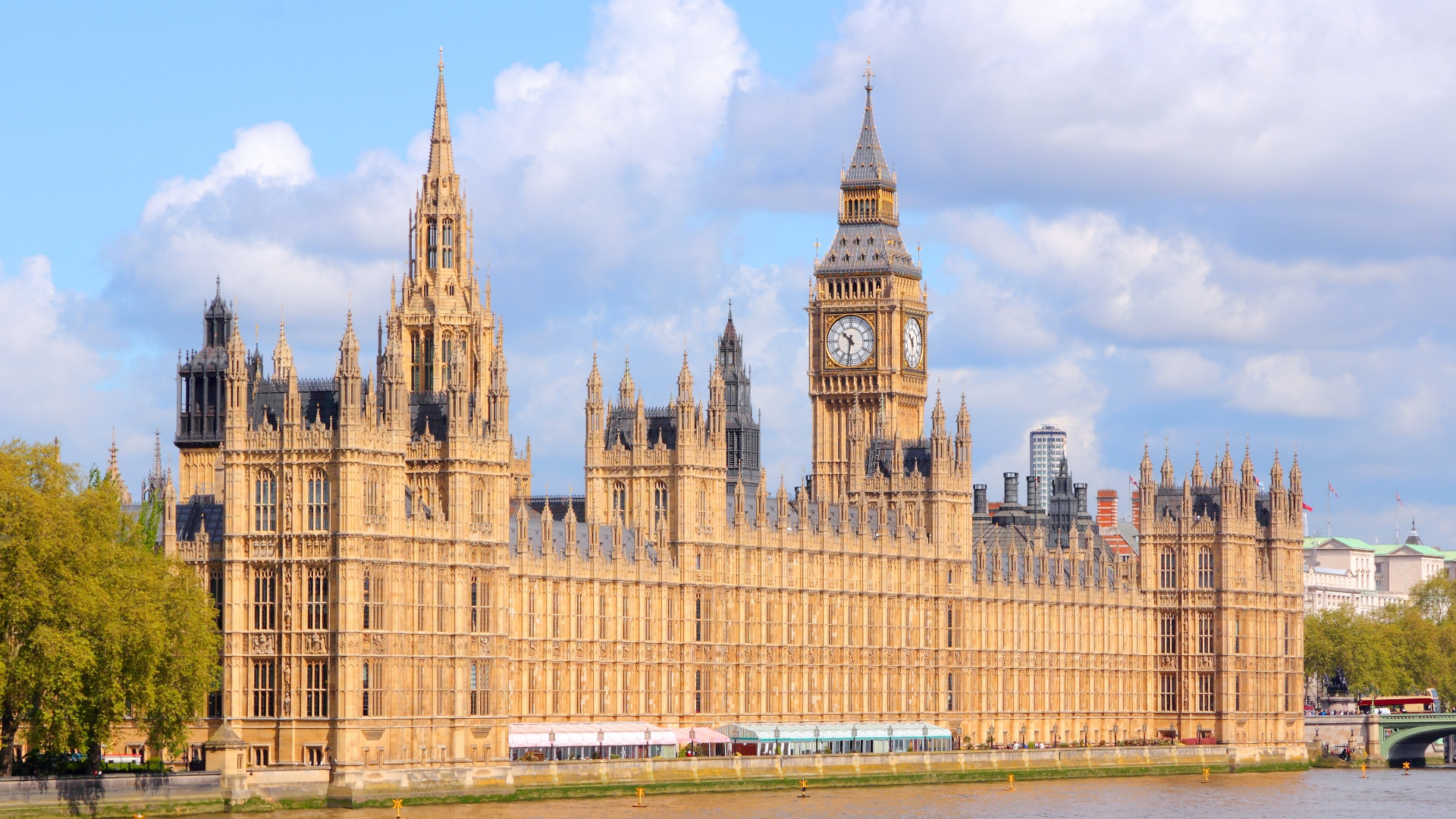
Subscribe to our newsletter to get this weekly ‘look ahead’ at what’s happening in Parliament and why it matters, straight into your inbox as soon as it's published.
Select Committee chairs: Candidates who wish to stand in the elections for the chairs of Select Committees have until 16:00 on Monday to submit their nomination papers. The practice is for the Speaker or Deputy Speaker to announce the results of any uncontested elections on the same day, shortly after nominations close. A list of candidates who have submitted their nomination papers has been updated daily by the parliamentary authorities.
Questions and statements: At 14:30, Ministers from the Department for Education will face questions from MPs.
Fifteen out of 25 questions are worded identically to at least one other question on the Order Paper. As we highlight each week in this Bulletin, this is usually an indication that the question has been suggested to them by either the Whips or the Minister’s Parliamentary Private Secretary. The identically worded questions, all submitted by Labour MPs, include:
seven MPs asking the Education Secretary “what assessment she has made of the adequacy of the provision of SEND services”;
two MPs asking “what steps she is taking to ensure the adequacy of the provision of level 3 vocational pathways for students”;
two MPs on “what assessment she has made of the effectiveness of the Office for Students”;
two MPs on “what steps she is taking to recruit more teachers”; and
two MPs on “what steps her Department is taking to identify children who are educated outside school”.
Any Urgent Questions or Ministerial Statements will follow.
Main business: MPs will debate and vote on a series of motions to approve four Statutory Instruments (SIs):
Russia (Sanctions) (EU Exit) (Amendment) (No. 3) Regulations 2024: these Regulations introduce sanctions on 17 Russian vessels.
Syria (Sanctions) (EU Exit) (Amendment) (No. 2) Regulations 2024: these Regulations expand the eligibility for humanitarian exceptions to petroleum measures in existing sanctions regulations, with the aim of improving the delivery of humanitarian aid to Syria.
Draft Renewable Transport Fuel Obligations (Sustainable Aviation Fuel) Order 2024: this Order imposes an obligation on aviation fuel suppliers to ensure that sustainable aviation fuel makes up an increasing proportion of the jet fuel supplied each year.
Draft Human Medicines (Amendments relating to Naloxone and Transfers of Functions) Regulations 2024: these Regulations will enable more professionals and organisations, such as homelessness and supported accommodation services, to obtain and supply naloxone, a drug used to reverse the effects of an opioid overdose, in emergency situations.
The first two SIs are replacements for earlier SIs that were laid before Parliament prior to its dissolution for the General Election. To remain in force, the original SIs had to be debated and approved by both Houses of Parliament before 5 September 2024. Because no time was allocated for a debate prior to the Summer recess, the original SIs were revoked and duplicates re-laid on the final day before the Summer recess to provide time for the necessary parliamentary scrutiny to take place.
The Secondary Legislation Scrutiny Committee in the House of Lords has drawn the fourth SI – the naloxone regulations – to the special attention of Peers on the grounds that they are “politically or legally important and give rise to issues of public policy likely to be of interest to the House”. The Committee found the Explanatory Memorandum inadequate, and its report contains further information from the Department of Health and Social Care about the implications of the policy.
Modernisation Committee: MPs will then consider a motion to appoint the members of the new ‘Modernisation Committee’ tasked with recommending reforms to the standards, practices and procedures of the House of Commons. The Committee will have 14 members: nine from Labour, three Conservatives and two Liberal Democrats. There is no representation on the Committee for any of the smaller parties.
Adjournment: Liberal Democrat MP for St Ives, Andrew George, has the adjournment debate on the availability of housing in Cornwall and the Isles of Scilly.
House of Lords: Two new Peers will be introduced today:
John Cryer (now Lord Cryer), former Labour MP and husband of Labour Minister Ellie Reeves and sister-in-law of Chancellor Rachel Reeves; and
Alok Sharma (now Lord Sharma), former Conservative Cabinet Minister and President of COP26.
As normal, the day begins with four Oral Questions. One to watch out for is Lord Davies of Brixton’s question on the uptake of Pension Credit, given that increasing take-up of this benefit is one of the ways the Government hopes to mitigate the effects of its plan to means-test access to the Winter Fuel Payment.
The main business in the Lords is consideration of the Budget Responsibility Bill, which completed its Commons stages last week. It has been certified as a Money Bill by the Speaker of the House of Commons, which limits the power of the House of Lords to amend the Bill.
A Money Bill is a public bill which in the opinion of the Speaker of the House of Commons contains only provisions dealing with national taxation, public money or loans. If a bill is certified as a Money Bill by the Speaker, and is passed by the House of Commons, it will become law after one month, with or without the approval of the House of Lords.

As explained in our procedural guide, a Money Bill can be presented for Royal Assent, with or without the agreement of the House of Lords, one month after it is sent to the Upper House. There is no obligation on the House of Commons to consider any Lords amendments to such a Bill. As a result, Money Bills do not usually have a Lords Committee stage and all remaining stages are taken on the same day. However, the Standing Orders of the House of Lords do not ordinarily permit more than one legislative stage to be taken on the same day: the House must therefore approve a motion to dispense with the relevant Standing Order, which Peers did for the purpose of this Bill last week. The Budget Responsibility Bill will therefore have a full Second Reading debate on Monday, but its remaining Lords stages will be a formality.
Peers will then debate a report from the Industry and Regulators Committee: Who watches the watchdogs? Improving the performance, independence and accountability of UK Regulators. The Committee is currently chaired by Baroness Taylor of Bolton who is also the chair of the Hansard Society’s Board of Trustees. However, the report was produced by her predecessor as Chair of the Committee, Lord Hollick, and it is he who will move the motion for the debate. The report contains several recommendations to improve parliamentary scrutiny of regulatory bodies, including the creation of a new ‘Office for Regulatory Performance’ – analogous to the National Audit Office – whose function is to advise and support Parliament in holding regulators to account.
Questions and statements: At 11:30, Justice Ministers will face questions from MPs.
Fourteen of the twenty-five questions on the Order Paper duplicate at least one other question. Six MPs have submitted an identically worded question asking the Minister “what steps her Department is taking to support victims of rape and sexual violence.” Notable other questions concern prison capacity and the impact of the recent violent disorder on the criminal justice system. Joe Powell, Labour MP for Kensington and Bayswater, which includes the Grenfell Tower site, has indicated he intends to use his topical question to ask the Justice Secretary whether the court backlog is slowing down criminal investigations in relation to the Grenfell Tower fire.
Any Urgent Questions or Ministerial Statements will follow.
Winter Fuel Payment: The highlight of the day’s business will be the debate on Rishi Sunak’s motion to annul the Social Fund Winter Fuel Payments Regulations 2024, the Statutory Instrument that implements the means-testing of the Winter Fuel Allowance.
The regulations are subject to the ‘made negative’ scrutiny procedure for Statutory Instruments, meaning that the regulations automatically remain law unless either House approves a motion to annul them (known as a ‘prayer motion’) within 40 days (excluding any periods of recess longer than four days). In the unlikely event that the Official Opposition’s prayer motion is agreed by the House, then the regulations will be revoked.
Your guide to all the key terms needed to help you understand the delegated legislation system at Westminster and the debates surrounding its reform, from '21-day rule' to 'Tertiary legislation' and everything in between. Last updated: 6 May 2022

As things stand, the debate is scheduled to last only 90 minutes. Under Standing Order No. 16, any ‘proceedings under an Act’ – which includes motions relating to Statutory Instruments – must be concluded not later than 90 minutes after the proceedings commence. The Government could table a motion to set aside the provisions of the Standing Order and extend the time for debate, but no such motion has yet appeared.
A vote will take place at the end of the debate and all eyes will be on the number of Labour MPs, if any, that rebel and vote with the Official Opposition and whether they subsequently lose the party whip. More likely is that many Labour MPs who are unhappy with the Government’s proposals simply stay away from the vote. The results of the division will be published soon after it is announced in the Chamber.
There is no formal abstention procedure at Westminster. Traditionally, if an MP wishes to register an abstention, they vote in both lobbies to record their participation but have one vote cancel the other out. Otherwise, MPs who are against a proposal from their own party, but do not want to vote with the opposing party, tend to find a way to be absent from the parliamentary estate when the vote takes place. However, when the votes are counted it is difficult for outside observers to discern whether an MP’s failure to vote was because they objected to the policy or because they had another, legitimate reason for being absent (such as travelling abroad or due to illness).
Opposition Day: The rest of the day is taken up by the first Opposition Day debate of the new Parliament. Indeed, it is the first Conservative Opposition Day in nearly 15 years. It is the first of 20 days that will be allotted to the opposition this session (as required under Standing Order 14(2) for proceedings on business of their choice; 17 of the days are at the disposal of the Leader of the Opposition and three of them at the disposal of the leader of the Lib Dems as the second largest opposition party in the House.
The subject of the debate chosen by the Conservatives is yet to be confirmed. It is possible that a deal may be reached between the Usual Channels (the party business managers) to extend the earlier debate on the Winter Fuel Allowance beyond 90 minutes. If so, then that will eat into the Opposition’s time, and provision may need to be made to reimburse that time at a later date.
Adjournment: Dame Caroline Dinenage – a Conservative candidate for chair of the Culture, Media and Sport Select Committee – is leading an adjournment debate on dynamic ticket pricing, following the controversy surrounding Ticketmaster’s sale of tickets for next year’s Oasis tour. The issue has already prompted public comments from the Leader of the House and the Culture Secretary, a question and answer at Prime Minister’s Questions, and a Competition and Markets Authority investigation, and so may be a likely candidate for an early inquiry by either the Culture, Media and Sport Committee or the Business and Trade Committee once they are established.
Westminster Hall: There are five Westminster Hall debates today:
9:30-11:00: UK priorities for COP29 (Deirdre Costigan, Labour)
11:00-11:30: Winter Fuel Payment (Rachael Maskell, Labour and Co-operative)
14:30-16:00: Illegal Immigration (Neil O’Brien, Conservative)
16:00-16:30: Hinckley National Rail Freight Interchange (Alberto Costa, Conservative)
16:30-17:30: Exempt supported accommodation (Preet Kaur Gill, Labour and Co-operative)
The Winter Fuel Payment debate will take place a few hours before the debate in the Chamber on the Opposition motion to annul the Regulations. If it goes ahead it should provide an early insight into how both the Government and Opposition intend to approach the issue and whether Ministers are minded to propose any mitigation to backbenchers like Rachael Maskell who are unhappy with the policy.
House of Lords Two new Peers will be introduced today:
Minette Batters (now Baroness Batters), the former president of the National Farmers’ Union; and
Harriet Harman (now Baroness Harman), former Labour MP and Mother of the House of Commons in the last Parliament.
The main business in the Upper House is Second Reading of the Lords Spiritual (Women) Act 2015 (Extension) Bill. The Lords Spiritual comprise 26 Church of England archbishops and bishops. Of the eligible dioceses, the bishops of five (the Archbishop of Canterbury, the Archbishop of York, the Bishop of London, the Bishop of Durham and the Bishop of Winchester) are automatically granted seats and prior to 2015 the remaining 21 places were filled based on seniority whenever a vacancy arises. Since the 2015 Act any vacancies that arise in these 21 places must be filled by eligible female bishops, rather than on the basis of seniority. However, the provisions of the 2015 Act are due to expire on 17 May 2025 so this Bill seeks to extend the provisions by five years to 17 May 2030.
This will be followed by a 90-minute debate on measures to attract more foreign direct investment into the UK.
The Government’s Bank Resolution (Recapitalisation) Bill – explained in a previous edition of this Bulletin – will have its second day of Committee Stage in Grand Committee off the floor of the House.
Our Statutory Instrument Tracker app is a vital monitoring tool for tracking the 1000+ Statutory Instruments (SIs) laid before Parliament each year as well as consultations on future SIs. With the SI Tracker you can build a personalised dashboard to tailor updates and alerts to your policy interests and compliance needs, saving you time and reducing the risk that you miss something that is business critical.
To find out how the online SI Tracker can help you....
Watch our demonstration videos
Explore the functionality in our user guide
Read our FAQs
Subscribe to one of our corporate, non-profit or individual plans
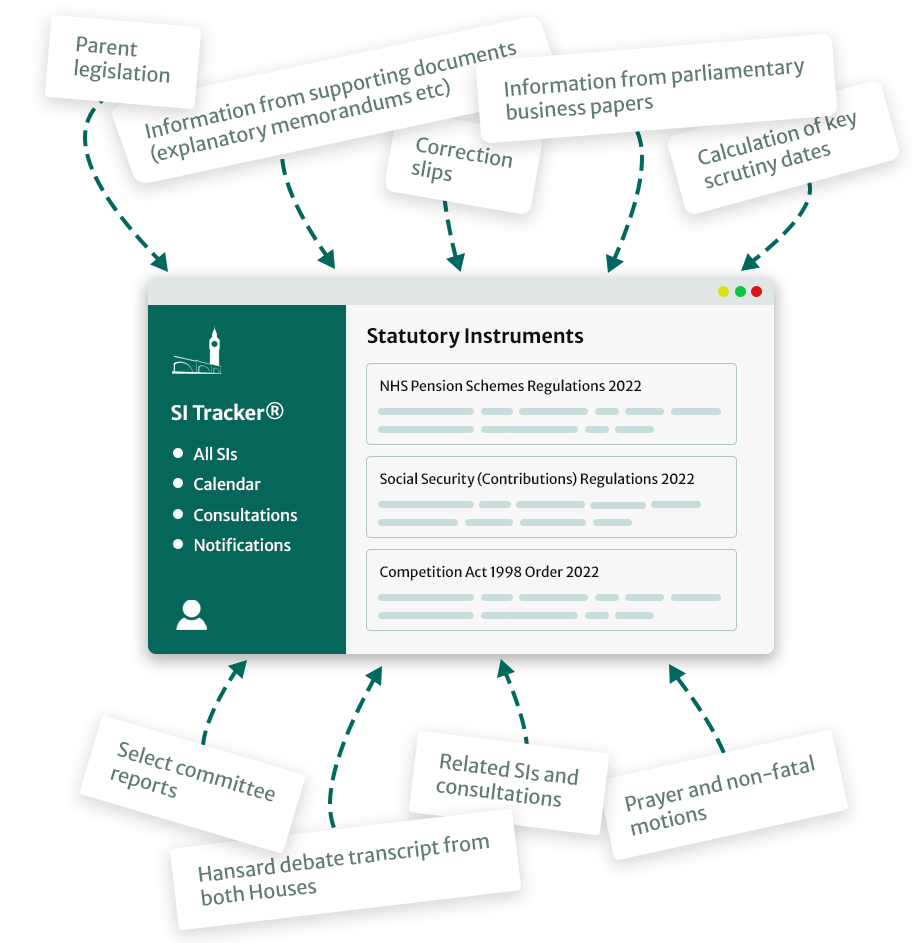
Select Committee chairs: Between 10:00 and 16:00, MPs will cast their votes to elect new chairs of 27 Select Committees.
These chairs were allocated between the parties before the Summer recess: Labour has been allocated 18 Select Committee chairs; the Conservatives five, and the Liberal Democrats have three. The chair of the Backbench Business Committee can be held by any non-Labour MP. The full list of Committee allocations can be found on the Parliament website.
The elections will take place by secret ballot under the Alternative Vote system, which allows MPs to rank candidates in order of preference. The voting system is explained further in our Hansard Society guide to setting up Select Committees in a new Parliament. This guide also explains what happens next in relation to the appointment of members of the Committees.
Questions and statements: At 11:30, Wales Office Ministers will face questions from MPs. Nine of the 15 questions on the Order Paper are duplicates: four identically worded questions ask about clean energy projects in Wales, three about the steel industry and two about supporting economic growth.
At 12:00, the Prime Minister will face his weekly session of Prime Minister’s Questions. The first question will come from the new Labour MP for Swansea West, Torsten Bell. The influential former Director of the Resolution Foundation is a newly-appointed Parliamentary Private Secretary to the ministerial team in the Cabinet Office.
Any Urgent Questions or Ministerial Statements will follow.
Main business: The main business is a general debate on building safety and resilience which is likely to centre on the findings and recommendations of the Grenfell Tower Inquiry that were announced last week.
Adjournment: Labour MP Rupa Huq has the adjournment debate on support for democracy in Bangladesh. In early August, the Bangladeshi Prime Minister, Sheikh Hasina, resigned and fled to India after an anti-government uprising erupted following a crackdown on student protesters. Rupa Huq has said it would be “unwise” for the UK to give asylum to Sheikh Hasina who she describes as having run a “bloodthirsty regime”. Hasina’s niece is Huq’s fellow Labour MP and current City Minister, Tulip Siddiq.
Westminster Hall: There are five Westminster Hall debates today:
9:30-11:00: Adequacy of planning policy for traveller sites (Kevin Hollinrake, Conservative)
11:00-11:30: Bus services in rural areas (Sarah Dyke, Liberal Democrat)
14:30-16:00: Depopulation in rural areas (Torcuil Crichton, Labour)
16:00-16:30: Oswestry to Gobowen railway line (Helen Morgan, Liberal Democrat)
16:30-17:30: Impact of financial fraud and economic crime (Luke Charters, Labour)
House of Lords: Two new Peers will be introduced today:
Kevan Jones (now Lord Beamish), former Labour Minister and MP; and
Chris Grayling (now Lord Grayling), former Conservative MP and Cabinet Minister.
The first items of business are the Committee Stages of two Government Bills.
Arbitration Bill: a Bill implementing recommendations by the Law Commission to reform the arbitration regime.
Commonwealth Parliamentary Association and International Committee of the Red Cross (Status) Bill: a Bill enabling the Government to treat the CPA and ICRC in a manner comparable to that of an international organisation of which the UK is a member. The Bill began life as a Private Members’ Bill in the last Parliament but it was lost during the pre-election legislative wash-up.
Afterwards, Peers will debate three motions relating to the Winter Fuel Payment regulations. In the House of Lords, there are two kinds of motion that can be tabled against a Statutory Instrument:
prayer/fatal motions: these are motions to annul the SI which, if agreed, would revoke it; and
regret/non-fatal motions: these are motions which state that the House “regrets” certain features or effects of the SI, but do not propose to annul the Statutory Instrument.
One of the three motions is a fatal motion put down by Baroness Altmann, a non-affiliated (and former Conservative) Peer and leading pensions expert. If Peers agree to Baroness Altmann’s motion, the regulations would be revoked. However, the House of Lords is cautious in the exercise of its veto power over delegated legislation; it has not rejected a Statutory Instrument since 2012 and has not approved a fatal motion praying against a ‘negative’ Statutory Instrument since 2000.
Two non-fatal motions have also been proposed by former Work and Pensions Minister, Baroness Stedman-Scott, and Liberal Democrat spokesman Lord Palmer of Childs Hill. These have a greater chance of succeeding, though they would not stop the regulations coming into force.
Questions and statements: At 9:30, Environment, Food and Rural Affairs Ministers will face questions from MPs. Only five of the 17 questions on the Order Paper are duplicates: three identically worded questions concern water companies and pollution and two relate to funding for farming.
The Solicitor General, Sarah Sackman, will then be questioned by MPs from 10:10. Seven of the 12 questions on the Order Paper are duplicates: four concerning prosecution rates for cases relating to violence against women and girl are identically worded, as are three about the steps being taken to ensure the efficient and effective prosecution of rioters.
The Solicitor General may also be asked – via a question from her Opposition shadow or a supplementary question – about a letter she has co-signed to the Foreign Secretary, David Lammy, expressing concern on behalf of her constituents about the decision to suspend some arms exports to Israel. Given that the Government has argued that the suspension is necessary on legal grounds, MPs are likely to want to know about any advice she has provided to the Government on this issue in her role as the chief legal officer sitting in the House of Commons.
Any Urgent Questions will follow.
Barring any Urgent Questions, the Leader of the House will make her weekly Business Statement to the House at 10:30. The statement will set out the forthcoming business for when the House returns from the party conference recess in October.
Any other Ministerial Statements will follow.
Main business: This is the rescheduled Sir David Amess Adjournment Debate which was not held in its traditional slot on the final day before Summer recess, when the Government chose to use that time for legislation.
This pre-Summer recess debate was re-named the ‘Sir David Amess Summer Adjournment Debate’ in memory of the Conservative MP Sir David Amess, who was murdered in his constituency in 2021. He was a frequent participant in this special adjournment debate which provides an opportunity for MPs to make speeches on any topic they choose. This will therefore be an attractive vehicle for more maiden speeches by new MPs.
Adjournment: Labour MP Lauren Edwards has the adjournment debate on the future of the UK Shared Prosperity Fund.
Westminster Hall: There are two Westminster Hall debates today:
13:30-15:00: Regulation of short-term lets (Rachel Blake, Labour and Co-operative)
15:00-16:30: Environmental standards for new housing (Ellie Chowns, Green)
House of Lords: Two new Peers will be introduced to the Lords today:
Theresa May (now Baroness May of Maidenhead), former Conservative Prime Minister; and
Liam Booth-Smith (now Lord Booth-Smith), former Downing Street Chief of Staff under Rishi Sunak.
Three debates will take place after Oral Questions on the subject of:
safety and regulation issues involved in the use of pedal cycles on the road network;
steps the Government will take to address challenges around prison capacities and to ensure the safety and wellbeing needs of vulnerable prisoners; and
current challenges of higher education funding.
Recess: The House of Commons rises at the close of business for the party conference recess and will next sit on Monday 7 October.
Commons: The House of Commons is not sitting.
Lords: The only item of business is a debate on the crisis in Sudan.
The House of Lords rises at the close of business for the party conference recess and will sit next on Monday 7 October.
In our latest ‘Whipping Yarn’, we talk with Simon Hart, former Conservative Chief Whip during Rishi Sunak’s Premiership. Hart opens up about his time in one of Westminster’s most demanding and discreet roles, chronicled in his new book, ‘Ungovernable: The Political Diaries of a Chief Whip’.
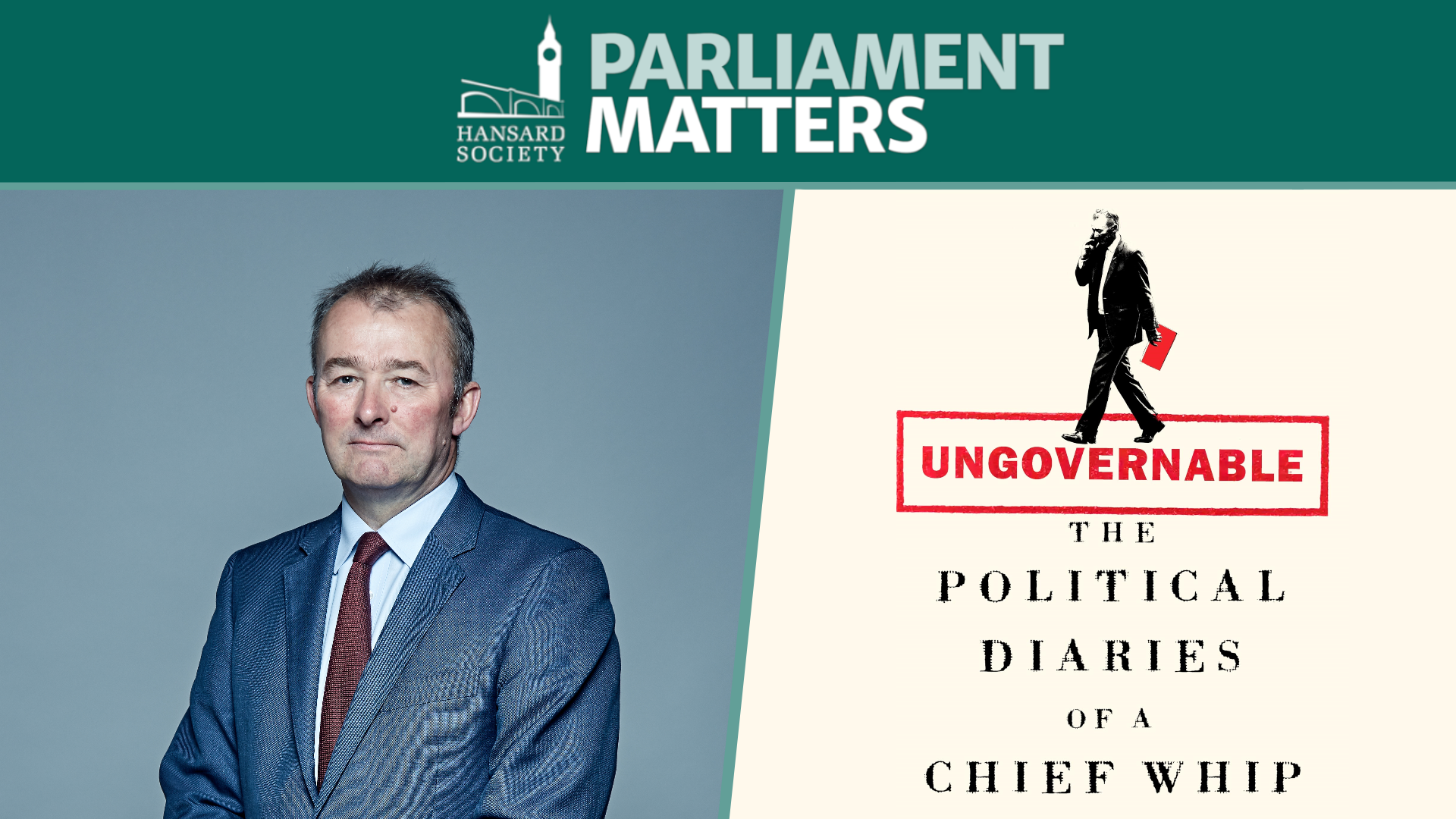
If a crisis or major national event occurs during a period when Parliament is adjourned, there are often demands from MPs, the media and the public for Parliament to be ‘recalled’. But the House of Commons Standing Orders stipulate that only Government Ministers - in reality, the Prime Minister - can ask the Speaker to recall the House. In recent years the House of Lords has generally been recalled at the same time as the House of Commons.
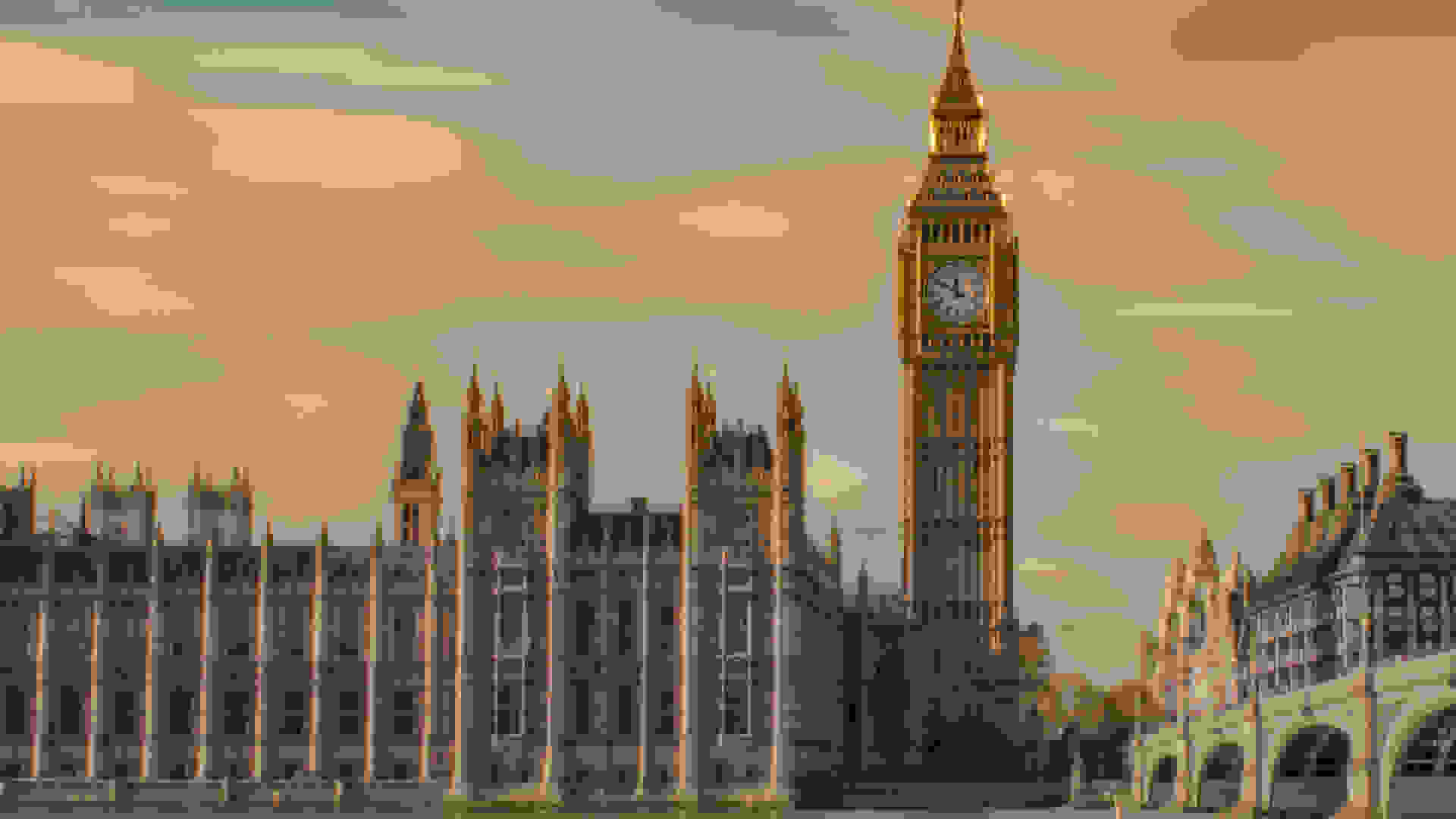
In response to the Modernisation Committee's call for views on 17 October 2024, we submitted evidence outlining key areas we believe the Committee should prioritise. Our submission recommended a focus on: strengthening legislative scrutiny, with particular emphasis on reforming the delegated legislation system; enhancing financial scrutiny, especially in relation to the Budget and the Estimates; addressing strategic gaps in parliamentary scrutiny; making more effective use of parliamentary time; and reviewing the Standing Orders, language and rituals of the House of Commons.

This briefing explains what to watch for during the Second Reading debate of the Terminally Ill Adults (End of Life) Bill on 29 November. It outlines the procedural and legislative issues that will come into play: the role of the Chair in managing the debate and how procedures such as the 'closure' and 'reasoned amendments' work. It looks ahead to the Committee and Report stage procedures that will apply if the Bill progresses beyond Second Reading. It also examines the government's responsibilities, such as providing a money resolution for the Bill and preparing an Impact Assessment, while addressing broader concerns about the adequacy of Private Members’ Bill procedures for scrutinising controversial issues.

In this ninth instalment of our special mini-podcast series, we continue to explore the latest developments in the progress of the Terminally Ill Adults (End of Life) Bill, often referred to as the assisted dying bill. We are joined by Dr Marie Tidball MP to discuss the amendments she has secured for a Disability Advisory Board and an independent advocate for people with learning disabilities.
